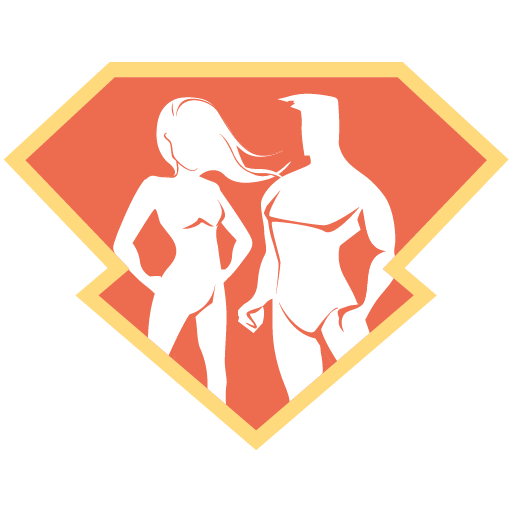The following article was adapted from Out of Your Wheelhouse by Collin Jewett, published in 2019 by Increase Publishing.
Creativity is essential to learning.
What?
They didn’t mention that when you were in
school?
Nah, they probably just handed you a textbook
and gave you an A+ if you ate it.
The good news is, creativity is just one call away, and its number hasn’t changed since you were in diapers. All you need to do is ask.
Ask what?
Ask anything.
100 Questions
The goal of this exercise is to ask 100 questions all in one go. This will doubtless lead to a whole lot of stupid. Asking stupid questions is excellent for bringing life to imagination, but simply put, it’s not something that adults generally like to do. The logic goes something like: stupid questions = stupid person. Kids ask stupid questions all the time – until they get told not to by us stupid adults. If you want to get your creativity back, you are going to have to take off your smart person badge for a bit, because creativity loves stupid questions.
You don’t have to write down all of your questions (though I strongly recommend it), and you don’t have to think of 100, but if you let your brain start asking questions again, especially the stupid ones, you won’t be able to stop the resurgence of creativity. It may not be overwhelming, it may not be awe-inspiring, but it will come. Curiosity is the fuel for creativity and, as we will see soon, creativity is the fuel for learning.
Stream-of-Consciousness Writing
Once you have generated all those questions, what do you do with them? Well, you might as well google a few of them, but there is a great, little mental exercise you can try to make use of the really interesting (or really stupid) questions you came up with; it is called stream-of-consciousness writing. It is exactly what it sounds like and it’s a lot of fun. Pick one or two of your favorite questions, write it at the top of a page, and start writing everything that comes to mind. The question provides some creative inspiration, but don’t force yourself to come up with an answer. It isn’t about answering the question it’s about letting your mind be free. And when I say write everything that comes to mind, I mean everything. If you think “hmmm, I don’t know what to write; I could really go for a corn dog right now.” you should write “hmmm, I don’t know what to write. I could really go for a corn dog right now.” I decided to try this out with the question “Is it harder to make adult friends, or do people just stop trying?” With this question in mind, I set a 5-minute timer and wrote the following:
I’m trying to put myself in the shoes of a man who is trapped in his job. He feels locked up. He feels like his family is disappointed in him. He feels like he doesn’t know what he’s doing, but he’s pretty sure he’s bad at it. He doesn’t know how to manage the family finances well, he doesn’t know how to be a better husband or father, he just wishes he had someone to explain it all to him. But he doesn’t have that. He just has a lot of unpaid bills. “How long has it been since I made a new friend?” he wonders “it’s been a long time since I went golfing with someone I actually like…” He thinks of a young couple he’s seen at church recently. They are so social and full of energy. “They haven’t lived long enough to know any better” he explains to himself. It makes him feel a little better. “I can’t imagine trying to talk to them. What would I have to say? ‘Hey, your life seems to be going ok, do you want to go golfing sometime?'” And everyone at work is a drag; they either care too much about work or don’t care about anything at all. Am I like that? I hate my job, but I think about it all the time. I have to, right? I wonder if people think I like it because I try so hard. The truth is, I just don’t want to get fired. If I got fired, I would lose everything; I’m barely holding on as it is. I want to spend time with fun, interesting people, but I would just feel like an outsider because I’m not fun or interesting. Maybe I should get into multilevel marketing or start buying bitcoin, that seems to be working for some people these days…
Where did that come from? I just set that question loose in my brain and let it wander around; I wrote every thought that it threw off. I didn’t plan to write from the perspective of some random dude, he just kind of appeared and I went with it. I love stream-of-consciousness writing as a means for releasing creativity. It may not result in publish-able content, but that’s not the point! The point is to relax and let your mind explore. Most kids are naturally good at letting their minds explore. They aren’t more creative than us, they just don’t have all the mental rules and regulations gridlocking their brain like you and I do.
Mental Journey
I frequently write about memory and the incredible applications of vivid imagery, but this bit is just plain fun. The mental journey is like a daydream on steroids. Have you ever dreamed that you were flying? If so, how did you do it? What did it feel like? Where did you go? For some reason, every time I have a dream like this, I control my flight patterns by alternatively holding and exhaling breath. It’s kind of like floating in water, I breath in deeply and hold it to ascend, and release the breath to swoop and dive. Whether you have had a dream experience like this or not, I’m sure you can imagine what it would be like to drift limitlessly above the ground, changing your speed and altitude effortlessly. This is the mental journey, and it starts right where you are sitting. Without flapping your arms or holding your breath, go ahead and lift yourself gently into the air wherever you are. Do a couple aerial somersaults to convince yourself that there are no strings attached and mind the ceiling fan. Glide through the space around you and pay close attention to the details: the sights, the sounds, the smells, the feeling of gravity poking you suspiciously and then skulking heavily off to bother someone else. Then leave. If you are inside, pass through a door, window, or even a wall into the area around the building. Travel slowly, but steadily away from the places you know. Eventually, you will enter a landscape purely of your own design. Running out of familiar territory, your mind will be forced to invent some of its own. Again, pay attention. What does it look like, smell like, sound like, feel like? Is it cold, is it warm? Is it light, is it dark? Maybe it resembles a place you have been before, but something is different, what is it? When I do this, I find that the landscape alters quickly and dramatically, but is lacking in distinctive features. Perhaps I climb the stairs in my apartment building and find myself in a medieval castle, which quickly transforms into an icy cavern, but neither place is furnished or populated. After a while, I find that the scenery often settles down – my brain decides to stick with the castle, for example – and then the details begin to arrive. People or monsters or machines often populate my world and interact according to their nascent personalities. What does your world look like? Much like stream-of-consciousness writing, the mental journey is all about letting your mind run freely.
Like a child, you can experience the excitement of curiosity when you let your brain ask questions and experience the joy of creativity as it tries to answer them. If you don’t plan on starting a career as an artist, this might seem like an exercise in futility, but it’s not. The ability to use one’s memory, to problem solve, to develop socially, and even, in some ways, improve one’s physical health, depends on the ability to think creatively. In my personal journey of rediscovering the joy of learning, I have come to regard creativity as one of the most fundamental tools to achieving success of any kind.
Here is the most valuable resource I know of for rediscovering that creativity and leveraging it to learn anything faster.



